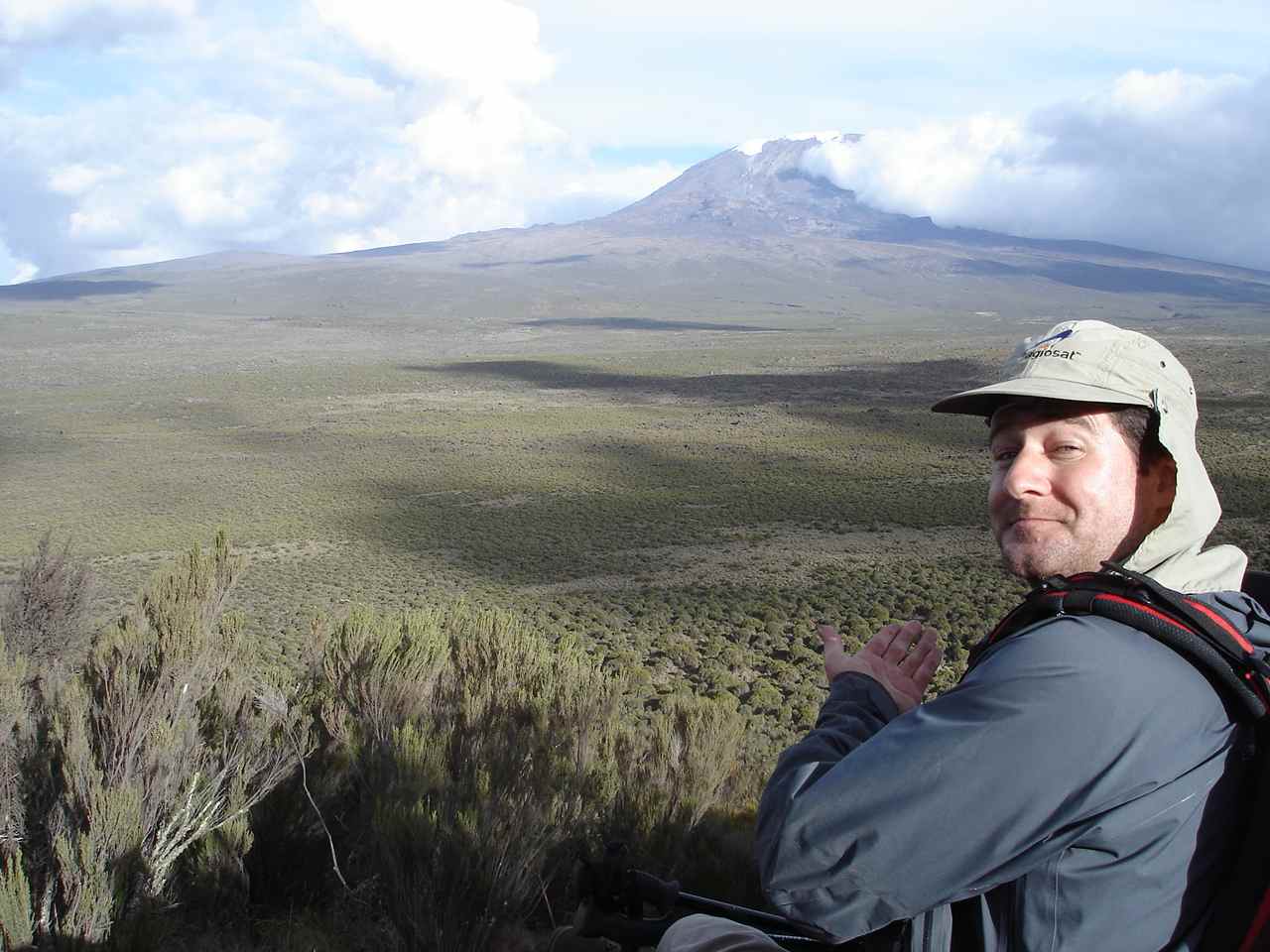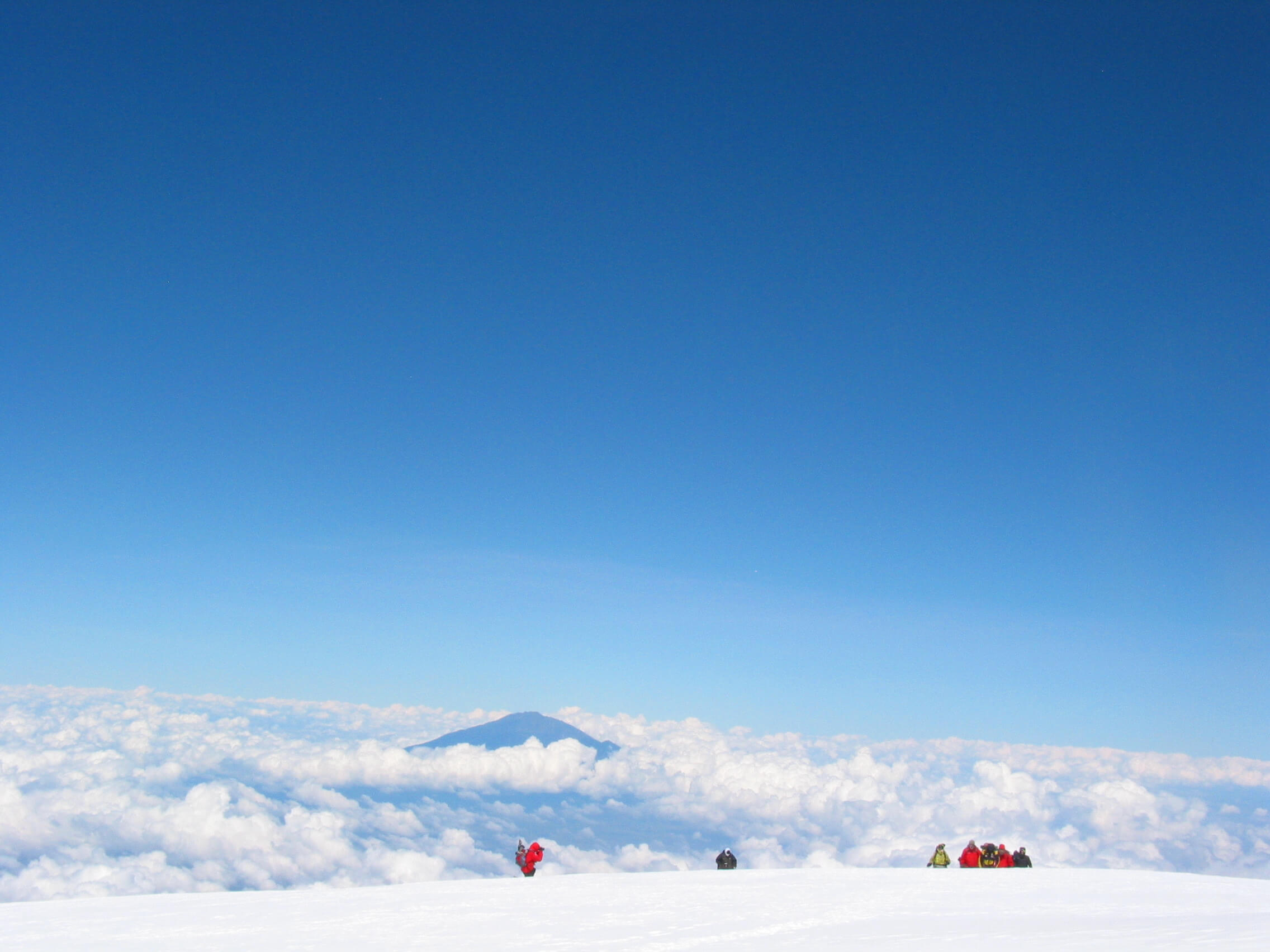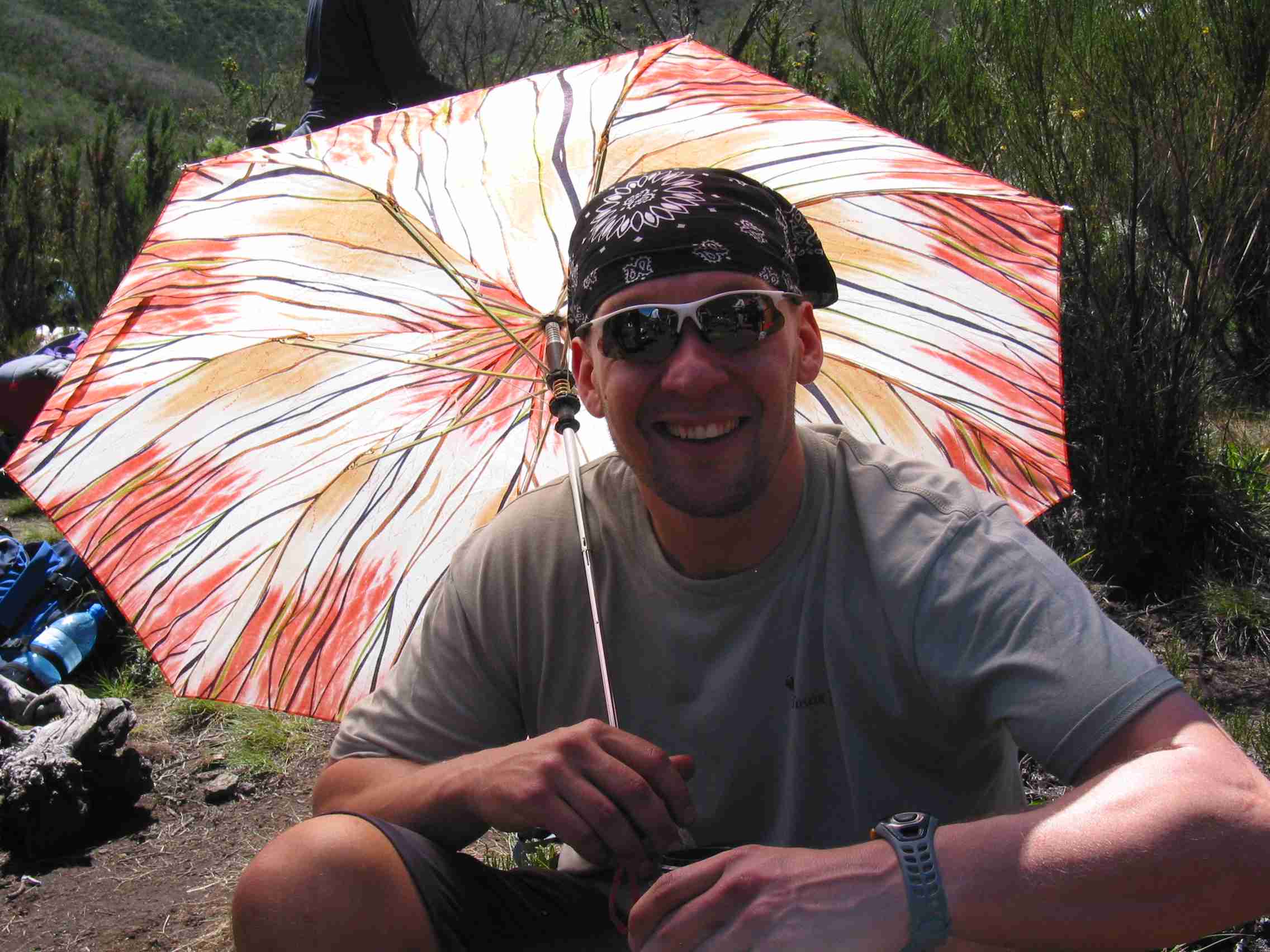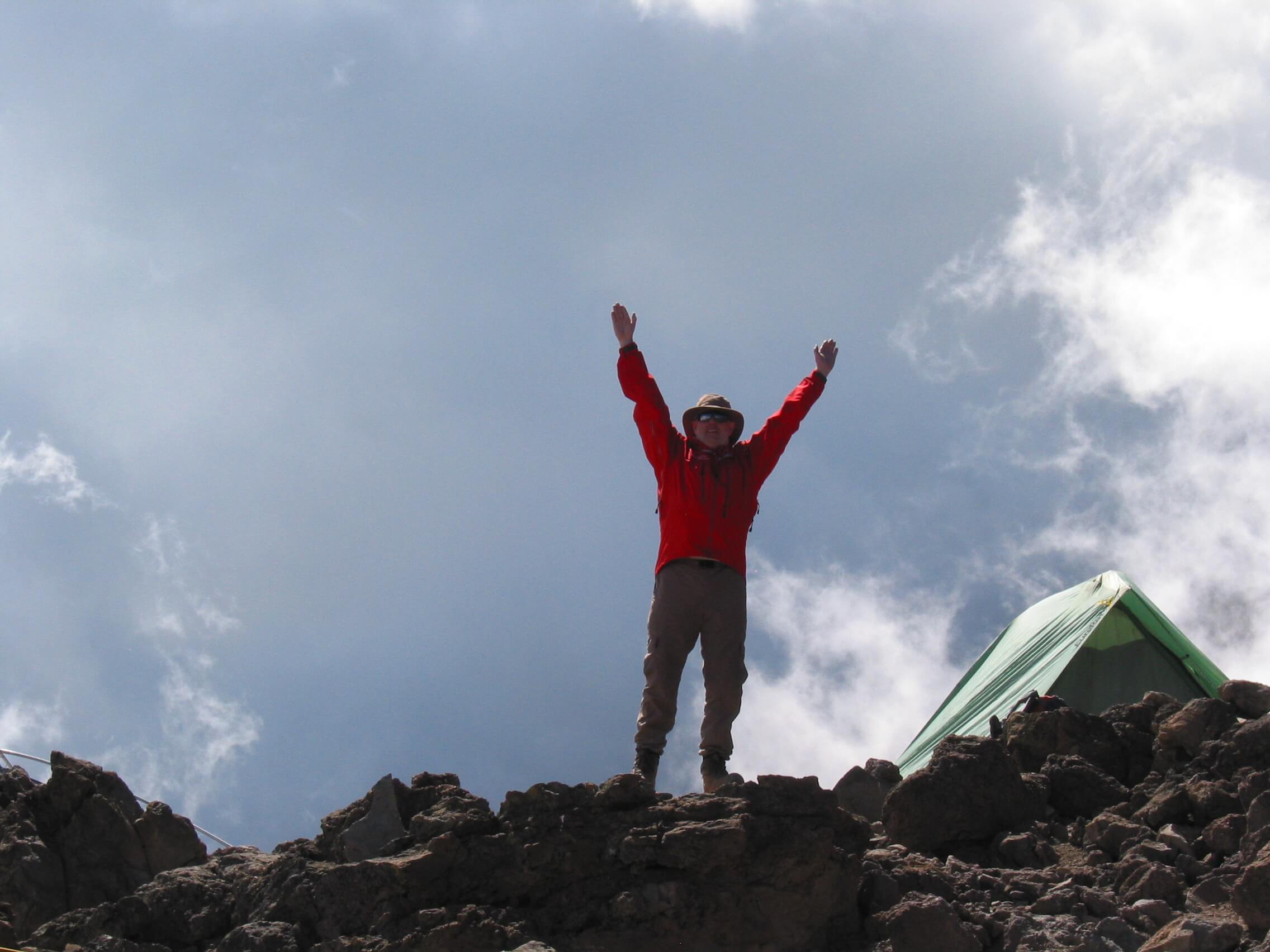Thinking of climbing Kilimanjaro? From heat to cold, from dry to rainfall, the nuances of the weather can make a big difference in our lives. Imagine the impact they can have when you embark on an adventure like trekking the tallest solitary mountain on earth.
Climbing Kilimanjaro is always thrilling, but some months enhance the experience and challenge more than others. Choosing the right time to go is just one of many factors to consider when planning your trip. Here’s some information to help you decide when to climb.
Climbing Kilimanjaro: January – April
From January to March, the average temperature on Kilimanjaro is 78°F (25.6°C) and rainfall is low. This is not the mountain’s driest season, but it is dry enough to offer a trek that is safe and enjoyable. Sunny, cloudless skies make for breathtaking views.
In April, the rainiest Kilimanjaro season begins and temperatures dip slightly. This is the least popular time in which to traverse the enormous stratovolcano because the wetness and mud make hiking a much more arduous task. The benefit of climbing Kilimanjaro at this time of year is that there are fewer people there.
Climbing Kilimanjaro: May – August
May follows in April’s footsteps as a rainy month, but it is a bit drier. The average temperature is 72°F (22.2°C). However, it still remains one of the more treacherous times to climb Kilimanjaro, so few companies offer tours during this time.
June, July, and August, on the other hand, are ideal in terms of temperature and rainfall. In fact, August is one of the least drizzly months of the year for Kilimanjaro, making it a choice stretch of time for wandering the slopes. All hikers should be aware that even though the days are warm and dry, the nights tend to be very cold.
Climbing Kilimanjaro: September – December
September is another optimal month for experiencing Kilimanjaro, making it peak climbing season. Its average temperature is 71°F (21.7°C), but the weather fluctuates from slightly cool to warm throughout the month. This mild weather, in the region’s driest month overall, makes September a favorite month to venture.
Conditions in October, November, and December are reminiscent of those in the earlier part of the year. The average temperatures of these months are 75°F (23.9°C), 76°F (24.4°C), and 77°F (25°C), respectively. Rainfall increases during then, causing the same aforementioned hazards, but on a smaller scale. Despite the slightly increased amount of rain, December remains a popular time to hike Kilimanjaro.
Choosing the Best Time for You
As with any decision, the best plan for tackling the challenge of climbing Kilimanjaro is one that combines personal preference with the expertise of specialists.
Your choice of a time frame to climb the colossal mountain should take into consideration your level of hiking experience, ability to withstand the elements, and all necessary protective measures. By assessing your decision from every angle, you are sure to plan a Kilimanjaro trek that is safe, fun, and immensely gratifying.
Check out our schedule to find out when you can climb






